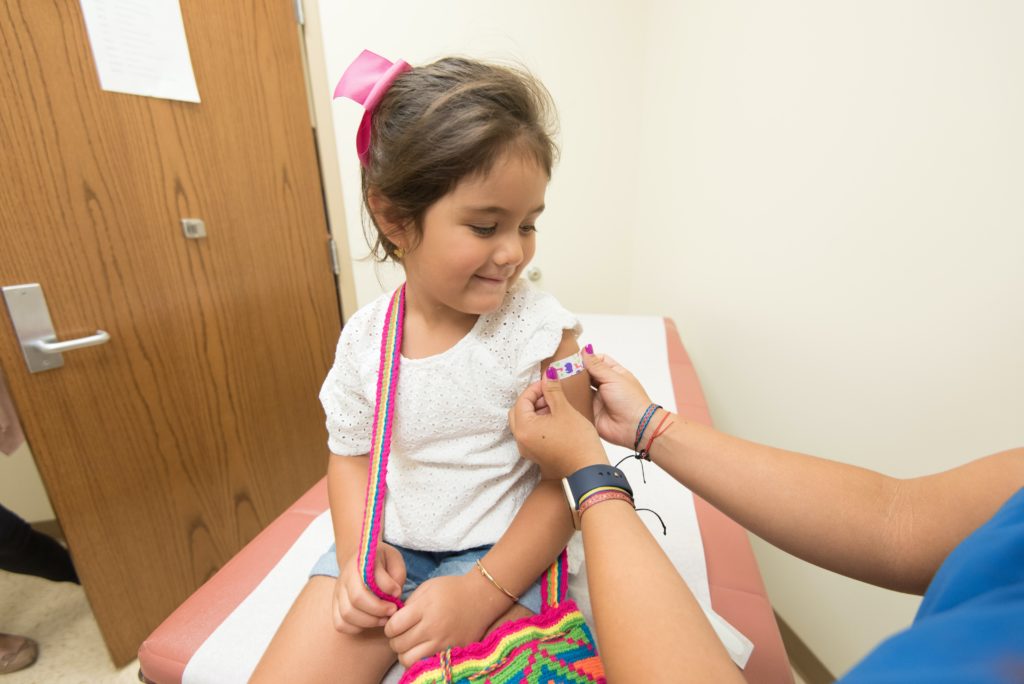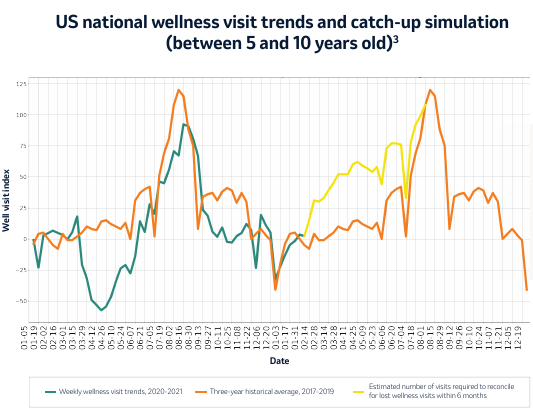
While 42% of all eligible Michigan residents have received at least one dose of the COVID-19 vaccine, experts worry about the future spread of other, previously controlled diseases. Child vaccination around the world has significantly declined during the COVID-19 pandemic, according to the World Health Organization (WHO). Keeping children healthy through routine vaccination is an important step for public health and safety.
Community safety measures implemented to slow the spread of COVD-19, such as shelter-in-place orders, have resulted in fewer pediatric visits and lower vaccine rates among children. To address the concerning decline, the Centers for Disease Control and Prevention released new guidance stating recommended routine vaccinations are an essential preventative health service that should be maintained.

The Risks of Delaying Child Vaccination
Due to the pandemic, many patients have been delaying or cancelling doctor’s visits, which could lead to a resurgence of diseases that were previously under control. In fact, 70-80% of children were missing their routine well visits in late April 2020. Infectious disease experts worry this is putting young children, adolescents, and adults at risk for dangerous diseases such as diphtheria, measles, and polio.
While fighting to end the COVID-19 pandemic, we cannot shift attention away from the dangers of other diseases, “or we risk exchanging one deadly outbreak for another,” explains Henrietta Fore, UNICEF Executive Director. Should COVID-19 continue to surge among vulnerable populations, the public health consequences of delayed routine vaccination could be incredibly severe, says Merck.
Why Routine Vaccination is Critical for Children
Babies and very small children are especially susceptible to diseases, which makes vaccinating one of the most important items on the checklist in early life. Children are recommended to receive a host of vaccinations from birth through age 18.
Addressing Child Vaccination Hesitancy
In 2019, the WHO declared vaccine hesitancy to be one of the top threats to public health, yet many parents fear vaccination could cause unintended consequences. Vaccines are overwhelmingly safer than the diseases they prevent, says The American Public Health Association. Years of research and testing are conducted before any vaccine is available for public use. Continuing vaccination among children will keep them protected and help prevent a resurgence of dangerous diseases across our communities.
Keeping Children Healthy: How to Play Your Part
- Reschedule any postponed well-child visits.
- Be prepared to have them receive a shot or two for any overdue vaccines. For reference, here are the recommended vaccines from birth to 18 years old, according to the Centers for Disease Control and Prevention.
- You should also reschedule any postponed appointments for yourself to ensure your health is in check and your vaccinations are up to date.
It is important to note, it you have a child between the ages of 16 and 18, they are also eligible for the COVID-19 vaccine. It is recommended they not receive any other vaccines at least 14 days prior to, in-between, or after the COVID-19 vaccine doses and vice versa. Keep this in mind and mention it to your child’s doctor when discussing vaccine scheduling.
For more information about the importance of childhood well visits to prevent the spread of infectious diseases, visit Merck’s “Vaccines Aren’t Virtual” campaign.